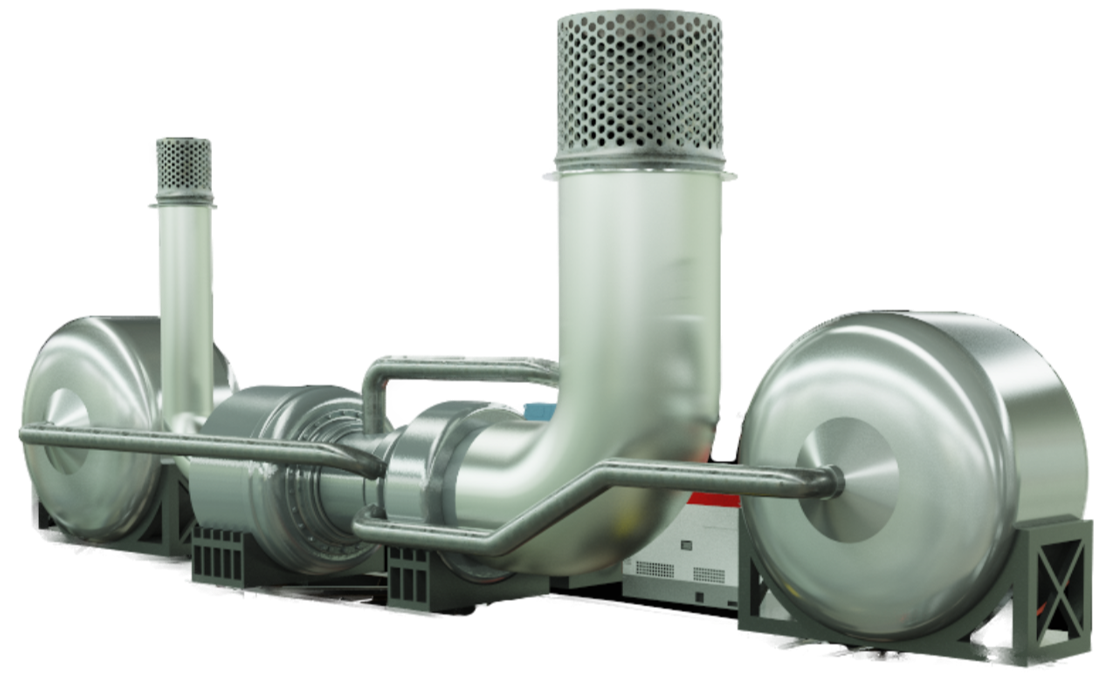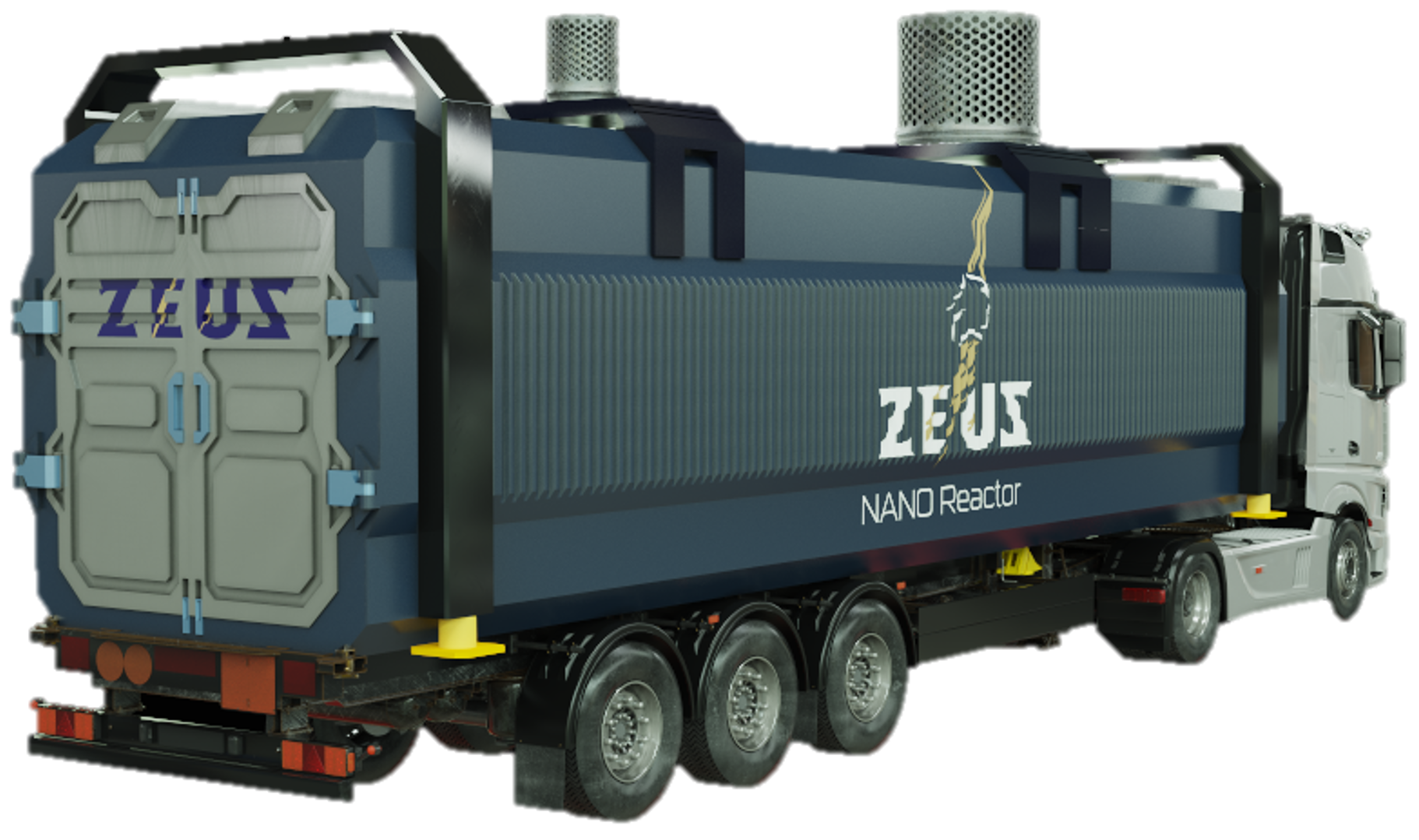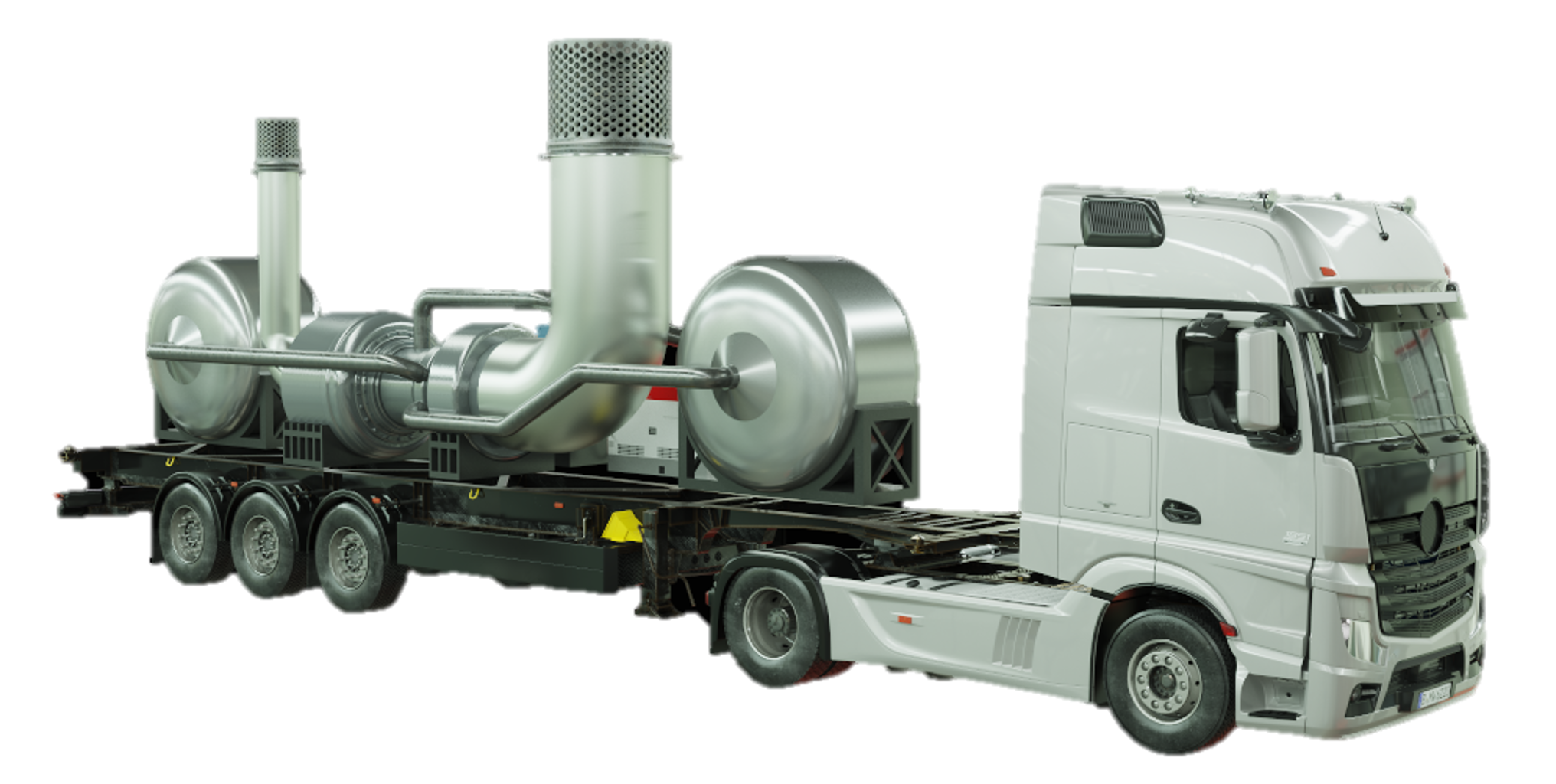
Introducing ZEUS – A Solid Core Battery Reactor

Our Proprietary Design of ‘ZEUS’ Advanced Portable Microreactor
NANO Nuclear has filed multiple provisional patent applications with the United States Patent and Trademark Office (USPTO) to build on the pioneering work done by its renowned scientific team and protect its proprietary, portable, advanced microreactor ‘ZEUS’.
Design and Safety: The Zeus nuclear microreactor feature a unique design with a completely sealed core that relies on a highly conductive moderator matrix to dissipate the fission energy. Heat is then removed from outside the vessel using a novel proprietary technology. The absence of an in core fluid eliminates typical accident scenarios such as loss of coolant and loss of flow. Overall, Zeus is engineered for safe operation in remote locations. Its ‘walk-away safe’ feature ensures stability and safety, minimizing risks in varied environments. This aspect is critical for ensuring consistent operation without the need for active intervention.
Portability and Adaptability: Zeus reactor core and power conversion system fit within a single standard shipping container, facilitating transportation to remote sites. This feature enhances its utility in areas where traditional energy infrastructure is not feasible. Without fluid in the core, associated components, i.e., pump and pipes, are elimimated drastically reducing the system footprint. The power conversion is obtained employing a open air Brayton cycle.
Energy Solution for Remote Areas: As an energy solution, Zeus is tailored for locations where conventional power sources are impractical. Its design and functionality offer a reliable power supply, essential for operations in isolated regions. Zeus core is designed to provide constant power for at least 10 full power years.
Versatile Energy Output: The microreactor prototype is designed to harness thermal energy for direct heat applications or to convert it into electric power. This versatility allows for diverse applications, ranging from heating to electricity generation, meeting a wide array of energy needs.
Reliable and Clean Energy: Zeus employs conventional materials and multiple off the shelf components in order to minimize time to market and reduce cost. The prototype ensures the provision of reliable and clean electricity. Its design and operational efficiency make it suitable for commercial use, as well as for non-electric applications such as hydrogen fuel production, a growing area of interest in the renewable energy sector.


ZEUS is being developed by leading world experts –

Professor Massimiliano Fratoni
Senior Director and Head of Reactor Design

Professor Peter Hosemann
Head of Nuclear Reactor Design and Materials
